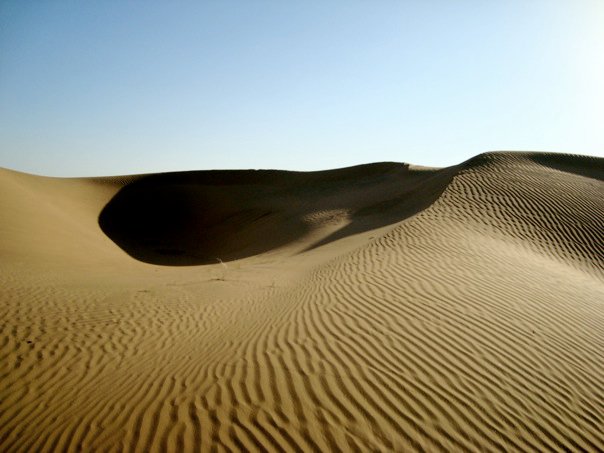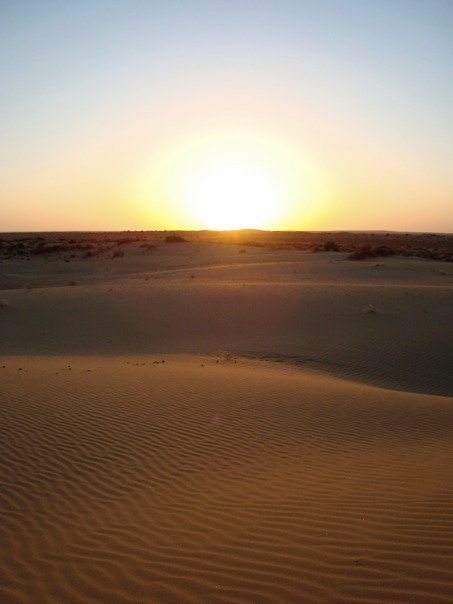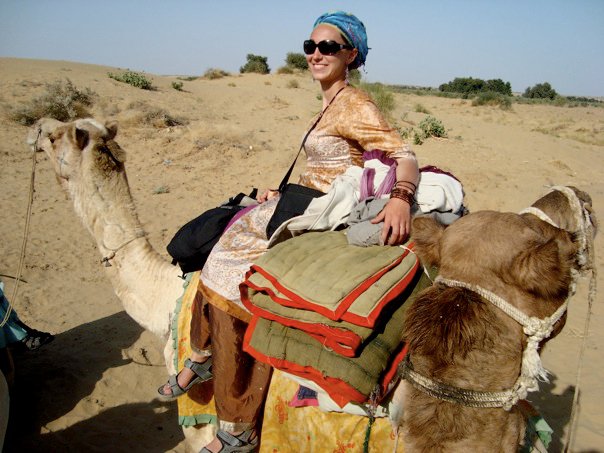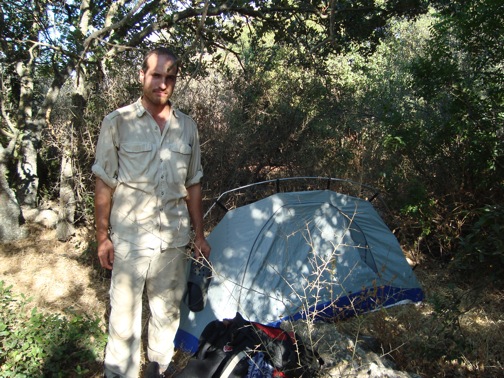
In the desert dunes of Rajasthan, India, it's easy to see how the Jews really had to rely on G-d to provide them with sufficient food and water during their time in the desert.
Early this year, Rabbi Ben and I set out into the desert. In Rajasthan, India, we spent eight days in the desert – five of which were just the two of us alone with two camels and our guide. It was an incredibly transformational experience. Wandering in that wilderness, we had to trust our guide completely. We had to hope that we had enough food and water, and that what we had wouldn’t spoil. We had to find safe places to sleep at night and we had to hope we didn’t have any trouble with our moody camels. I learned, in Rajasthan, that going into the desert truly is an act of faith.
This week’s parsha is called “Bamidbar” and is the start of an entire new book of the Torah, also called “Bamidbar,” “In The Desert.” Into the desert the Jews go, destined to wander for the next 40 years. But the Jews’ experience wasn’t just one of walking around in the desert, of loading and unloading their animals, and of experiencing the physical world. If anything, they spent most of their time in the spiritual world, what with G-d hovering over them in a cloud and dumping food on the ground for them to find every morning. Still, I can’t help thinking that there has to be a reason the Jews ended up wandering in the desert. After all, they could just have easily had to wander in a forest (hey, it happened to Goldilocks) or in the mountains or in a marsh. Why the desert?

Sunset in the desert. With sand as far as the eye can see, you can see G-d on every horizon.
During our time in the desert, Rabbi Ben and I had a lot of time to think, to observe, and to talk. What we noticed was that we were learning more about life and about deserts during that camel safari than either of us ever could have learned in a classroom, with a book in front of us. Whether we were gazing at the clear, star-filled sky, or stopping in our tracks to watch a snake slither past, we were surrounded by wonder. I’ve spoken with many other people who have said that they also felt a sense of wonderment particular to the desert. In other places, it’s easy to be too distracted to gaze about with wonder. If you’re in a forest, you have to carefully watch where you step, and there are trees and large objects surrounding you at all times. If you’re in a marsh, you have to try not to sink. If you’re on a mountain, you have to try not to fall off. But if you’re in the desert, there are no distractions. You can take in the vast horizon with nothing to block you. Perhaps this is what G-d wanted of the Jewish people as they wandered – to make it possible that wherever the Jews looked, they could see Him, with no preoccupations and nothing blocking their view.

Although we did ride them some of the time, our camels were most important for their ability to carry sufficient food and water for us on our journey through the desert.
When we went into the desert, we took one very important thing with us: camels. Our two camels carried all our supplies, which consisted mostly of water, food, and bedding. There’s no guarantee in the desert that we’ll find any of the above. That’s another one of the things that’s special about a desert: there’s nothing there. If we’d gotten lost or stuck in the desert with nothing, we would have been in big trouble. Imagine how the Jews felt when they were in the desert. Even with the manna coming from heaven, I would be nervous – the moment that stuff stops falling, we’re done for. Basically, in the desert, there is no way to survive without G-d. We have no choice but to rely on G-d.
And I think that’s really what the point of the desert ultimately is. In the desert, you have to have faith. When we have nowhere else to turn, we turn to G-d. When there’s nothing blocking our view, no trees or mountains, no friends or enemies, but only desert as far as the eye can see, we can see Him.
“O G-d, You are my G-d, earnestly will I seek You; my soul thirsts for You, my flesh longs for You, in a dry and weary land, where no water is.” (Tehillim 63:2)
Read More













